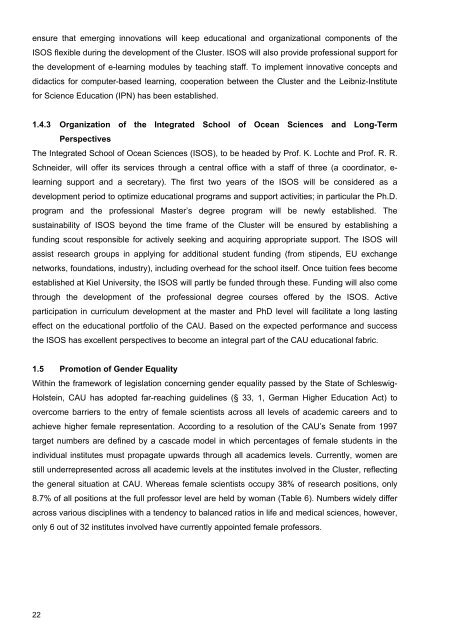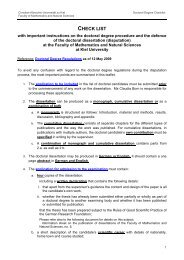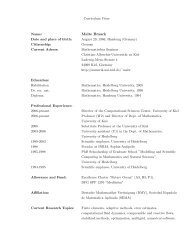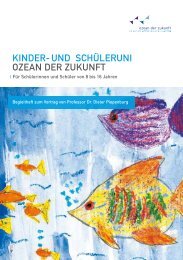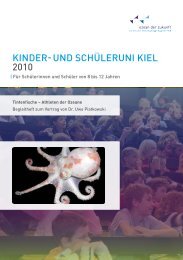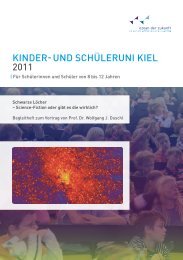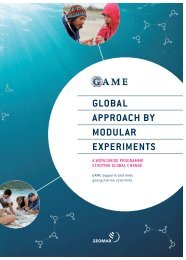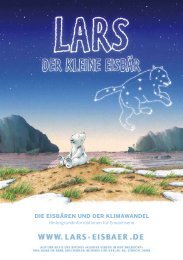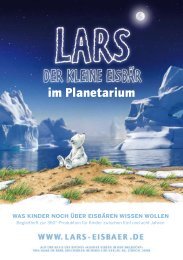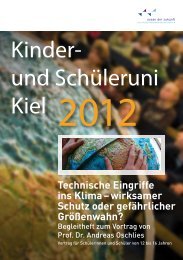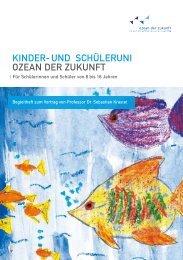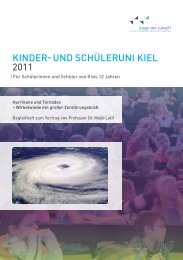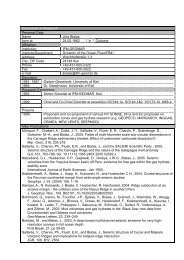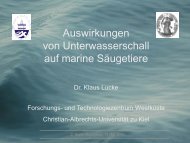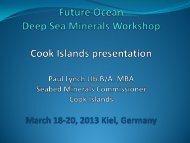Untitled - The Future Ocean
Untitled - The Future Ocean
Untitled - The Future Ocean
- No tags were found...
You also want an ePaper? Increase the reach of your titles
YUMPU automatically turns print PDFs into web optimized ePapers that Google loves.
ensure that emerging innovations will keep educational and organizational components of theISOS flexible during the development of the Cluster. ISOS will also provide professional support forthe development of e-learning modules by teaching staff. To implement innovative concepts anddidactics for computer-based learning, cooperation between the Cluster and the Leibniz-Institutefor Science Education (IPN) has been established.1.4.3 Organization of the Integrated School of <strong>Ocean</strong> Sciences and Long-TermPerspectives<strong>The</strong> Integrated School of <strong>Ocean</strong> Sciences (ISOS), to be headed by Prof. K. Lochte and Prof. R. R.Schneider, will offer its services through a central office with a staff of three (a coordinator, e-learning support and a secretary). <strong>The</strong> first two years of the ISOS will be considered as adevelopment period to optimize educational programs and support activities; in particular the Ph.D.program and the professional Master’s degree program will be newly established. <strong>The</strong>sustainability of ISOS beyond the time frame of the Cluster will be ensured by establishing afunding scout responsible for actively seeking and acquiring appropriate support. <strong>The</strong> ISOS willassist research groups in applying for additional student funding (from stipends, EU exchangenetworks, foundations, industry), including overhead for the school itself. Once tuition fees becomeestablished at Kiel University, the ISOS will partly be funded through these. Funding will also comethrough the development of the professional degree courses offered by the ISOS. Activeparticipation in curriculum development at the master and PhD level will facilitate a long lastingeffect on the educational portfolio of the CAU. Based on the expected performance and successthe ISOS has excellent perspectives to become an integral part of the CAU educational fabric.1.5 Promotion of Gender EqualityWithin the framework of legislation concerning gender equality passed by the State of Schleswig-Holstein, CAU has adopted far-reaching guidelines (§ 33, 1, German Higher Education Act) toovercome barriers to the entry of female scientists across all levels of academic careers and toachieve higher female representation. According to a resolution of the CAU’s Senate from 1997target numbers are defined by a cascade model in which percentages of female students in theindividual institutes must propagate upwards through all academics levels. Currently, women arestill underrepresented across all academic levels at the institutes involved in the Cluster, reflectingthe general situation at CAU. Whereas female scientists occupy 38% of research positions, only8.7% of all positions at the full professor level are held by woman (Table 6). Numbers widely differacross various disciplines with a tendency to balanced ratios in life and medical sciences, however,only 6 out of 32 institutes involved have currently appointed female professors.22


